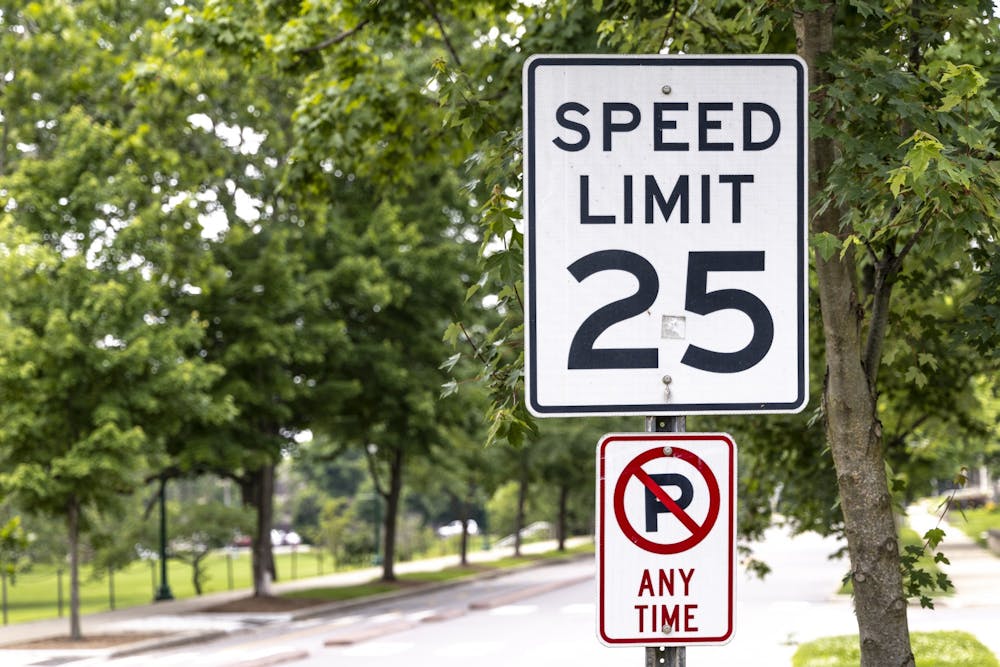The Bloomington City Council unanimously voted to amend the vehicle and traffic municipal code Wednesday night. This ordinance is a collection of city traffic and parking control changes based on a collection of public requests and feedback through various commission offices.
The changes to Title 15 Municipal Code of the Bloomington Municipal Code include integrating an administrative fee for towing vehicles and removing a traffic signal at the intersection of Leonard Springs and Tapp roads.
Beth Rosenbarger, the assistant director of Bloomington Planning and Transportation, said the signal was actually installed to be a temporary signal during the I-69 construction.
In another section of Title 15, Rosenbarger spoke of adding two signals on North Walnut Street, one at the intersection with 14th Street and the other at the one with 11th Street.
City staff proposed changing the speed limits on multiple sections along Rogers/Madison St. and Henderson/Indiana Avenue from 30 to 25 miles per hour. They also suggested removing and adding different parking zones throughout the city including a pay-by-phone area on North Walnut Grove and Woodlawn Avenue on campus.
There was one scheduled amendment to the legislation that passed 7-0-0. In section seven of the ordinance, City staff from the Planning and Transportation, Engineering and other departments recommended adding two loading zones on 200 4th St. This approved revision clarified the address to say 200 E. 4th St.
Along with the second reading and resolution of the legislation, the City Council’s agenda included council member reports and public comments.
Councilmembers shared when their constituent meetings are scheduled this month. The Zoom information and room numbers for all meetings are available on the City Council calendar.
During public comments, Bradley Rushton, the president of the American Federation of State, County, and Municipal Employees for Bloomington, said he and his constituents wished for fair more support from the City Council with fairer living wages.
“The disparity in compensation is apparent when one looks at how many employees the city has lost in recent months,” Rushton said. “While we appreciate the city has many financial responsibilities, it is also the responsibility of the administration to address employees' rate of fair compensation with the rate of inflation.”
Steve Robertson said he’d been employed with the city for more than 29 years and had similar concerns.
He said he felt the city hired and trained people into becoming good employees but, because there is no competitive wage, he said people leave to join other communities and workforces.
Robertson said the city needed to offer competitive wages to attract more qualified workers who could in turn provide quality services. The workforce, he said, is the backbone of the city.
The council agreed to cancel the work session on Friday, August 5. In the next regular session, they will read and discuss ordinance 22-21, which details municipal codes relevant to preserving historic districts.





